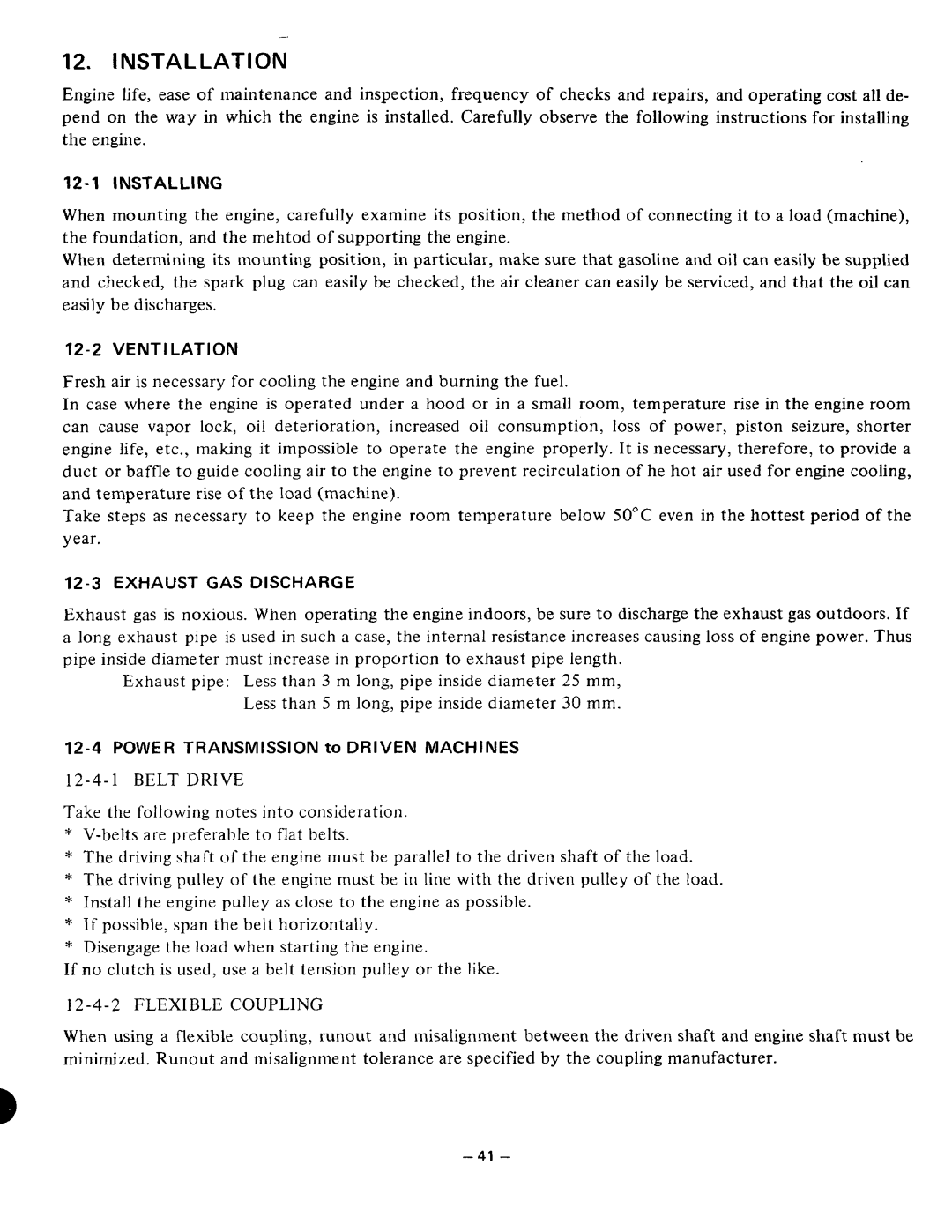
12. INSTALLATION
Engine life, ease of maintenance and inspection, frequency of checks and repairs, and operating cost all de- pend on the way in whichthe engine is installed.Carefullyobserve the following instructions for installing the engine.
When mounting the engine, carefully examine its position, the method of connecting it to aload (machine), the foundation, and the mehtod of supporting the engine.
When determining its mounting position, in particular, make sure that gasoline and oil can easily be supplied and checked, the spark plug can easily be checked, the air cleaner can easily be serviced, and that the oil can easily be discharges.
12-2 VENT1LATION
Fresh air is necessary for cooling the engine and burning the fuel.
In case where the engine is operated under a hood or in a | small room, temperature rise in the engine room | |
can causevaporlock, | oil deterioration, increased oil consumption, loss of power,pistonseizure,shorter | |
engine life, etc,, making it impossible to operate the engine properly. It is necessary, therefore, to providea duct or baffle to guide cooling air to the engine to prevent recirculation of he hot air used for engine cooling, and temperature rise of the load (machine).
Take steps as necessary to keep the engine room temperature below 50°C even in the hottest period of the year.
12-3 EXHAUST GASDISCHARGE
Exhaust gas is noxious. When operating the engine indoors, be sure t o discharge the exhaust gas outdoors. If a long exhaust pipe is used in such a case, the internal resistance increases causing loss of engine power. Thus pipe inside diameter must increase in proportion to exhaust pipe length.
Exhaust pipe: Less than 3 m long, pipe inside diameter 25 mm, Less than 5 m long, pipe inside diameter 30 mm.
12-4 POWER TRANSMISSION to DRIVENMACHINES
12-4-1 BELT DRIVE
Take the following notes into consideration.
*
*The driving shaft of the engine must be parallel to the driven shaft of the load.
*The driving pulley of the engine must be in line with the driven pulley of the load.
*Install the engine pulley as close to the engine as possible.
*If possible, span the belt horizontally.
*Disengage the load when starting the engine.
I f n o clutch is used, use a belt tension pulley or the like.
12-4-2 FLEXIBLE COUPLING
When using a flexible coupling, runout and misalignment between the driven shaft and engine shaft must be minimized. Runout and misalignment tolerance are specified by the coupling manufacturer.
- 4 1 -
